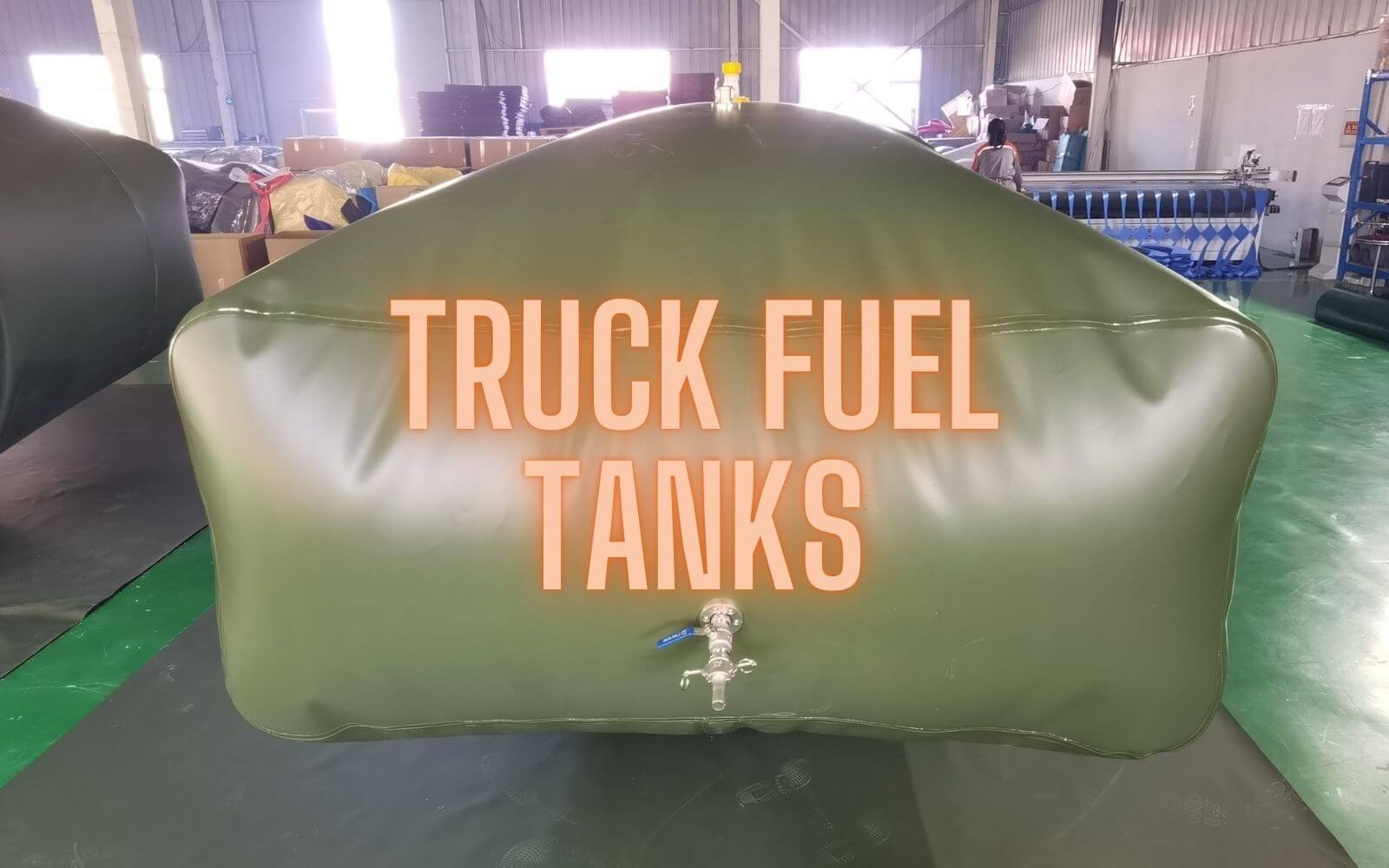TRUCK FUEL TANKS
When it comes to fuel storage for trucks, the choice of tank is crucial. Traditional rigid fuel tanks have long been the standard, in previous, there is no other options, but the emergence of flexible fuel tanks is changing the game.
These innovative tanks offer a range of benefits that make them an increasingly popular choice for truck fuel storage and transportation.
This article explores why flexible fuel tanks are the best solution for truck fuel storage, comparing them with rigid tanks and highlighting their numerous advantages.
One of the most significant advantages of flexible fuel tanks is their adaptability. Unlike rigid tanks, which fix in shape, size and material, most of time, on fittings, flexible fuel tanks can perfectly fit to the available space on a truck.
More Space:
This flexibility allows for more efficient use of space, enabling trucks to carry more capacity of fuel without the need for extensive modifications. The ability to mold the tank to fit specific compartments space makes flexible tanks an ideal solution for various truck specific designs and configurations.
Robust Material Used:
Flexible fuel tanks use high-strength, durable polyester TPU materials that are resistant to punctures, abrasions, and other forms of damage from physically, and compatible to various diesel, gasoline, and kerosene oils.
Extreme Working Condition:
These materials design to withstand harsh conditions, working temperature ranges from -40~90 degree, making flexible tanks highly resilient in demanding environments.
Long Serve Life:
While rigid tanks can crack or corrode over time, especially under heavy use or exposure to the sunshine, flexible tanks maintain their integrity, offering a longer lifespan(for common usage, the lifespan can be over 10 years, and reducing the need for frequent replacements.
Lightweight Features:
Another fatal benefit of flexible fuel tanks is their lightweight nature. Unlike rigid tanks, which are often heavy and cumbersome, flexible tanks are much lighter, making them easier to handle to install and transport. This reduction in weight means to better fuel efficiency for the truck, as less energy is required to carry the tank.
Simplify Shipment:
Additionally, the ease of installation and removal of flexible tanks simplifies the logistics of fuel storage, especially in situations where tanks need to be quickly deployed or replaced.
Cost is always a critical factor in any business decision, and here, flexible fuel tanks have a clear advantage.
Cost-effective on tank:
The initial cost of purchasing is much lower than the steel tanks and installing a flexible tank is generally lower than that of a rigid tank, as the flexible tanks need less labor involved and few equipment needed.
Saving more:
Moreover, the reduced weight of flexible tanks contributes to lower fuel consumption, resulting in ongoing cost savings. The durability and longevity, over 10 years, of flexible tanks also mean fewer replacements and repairs, further enhancing their
Safety:
Safety is paramount in fuel storage, and flexible fuel tanks excel in this area. These tanks design with advanced safety features, including pressure breather valves and reinforced seams, to prevent leaks and spills.
Military Standard:
Flexible tanks are also compliant with industry regulations, as they’re used in some military purposes, so can meet the military standards, ensuring that they meet the necessary safety standards for fuel storage and transportation. The reduced risk of accidents and environmental contamination makes flexible tanks a safer choice for truck operators.
In today’s environmentally conscious world, the sustainability of fuel storage solutions is a growing concern.
Better choice:
Flexible fuel tanks offer a more eco-friendly option compared to rigid tanks. The materials used in flexible tanks are often recyclable, and the reduced weight of these tanks leads to lower fuel consumption and fewer emissions.
Custom for better fits:
Additionally, the ability to customize the tank size and shape means that fuel storage can be optimized to reduce waste in space and increase the consumption, contributing to a more sustainable operation.
Flexible fuel tanks represent a significant advancement in fuel storage technology, offering numerous benefits over traditional rigid tanks. Their adaptability, durability, lightweight nature, cost-effectiveness, safety, and environmental advantages make them the best solution for truck fuel storage. As the demand for more efficient and sustainable fuel storage solutions grows, flexible fuel tanks are set to become the preferred choice for truck operators looking to optimize their fuel management systems.








